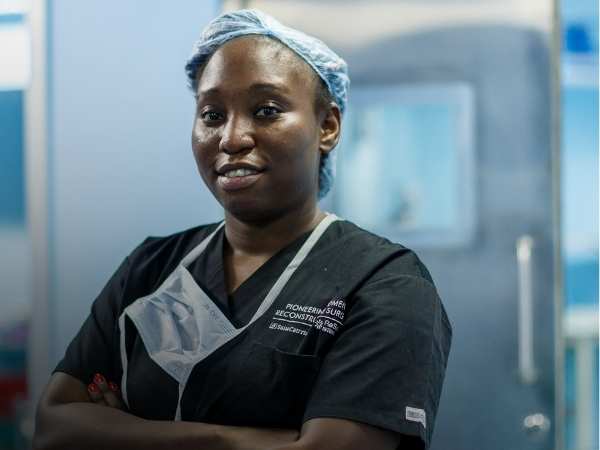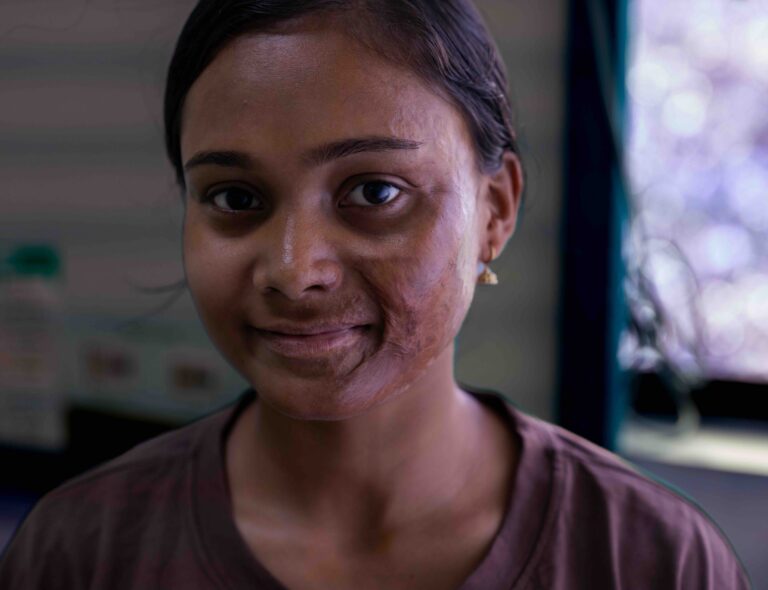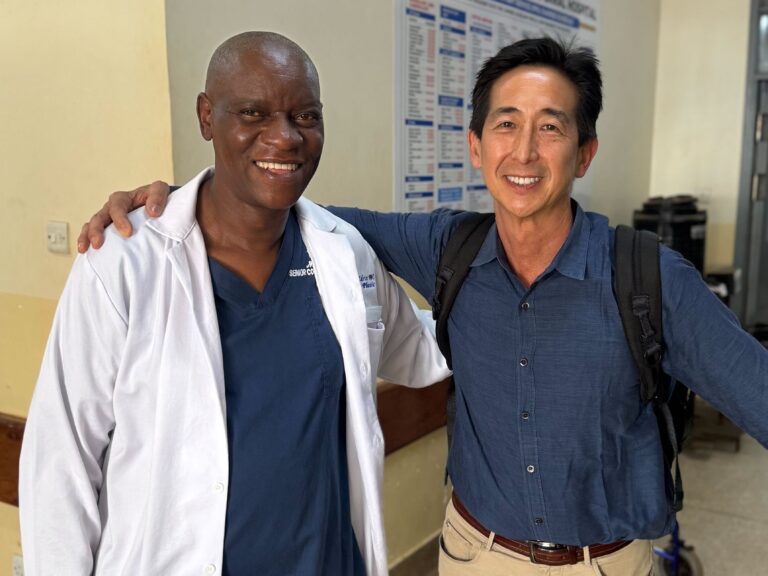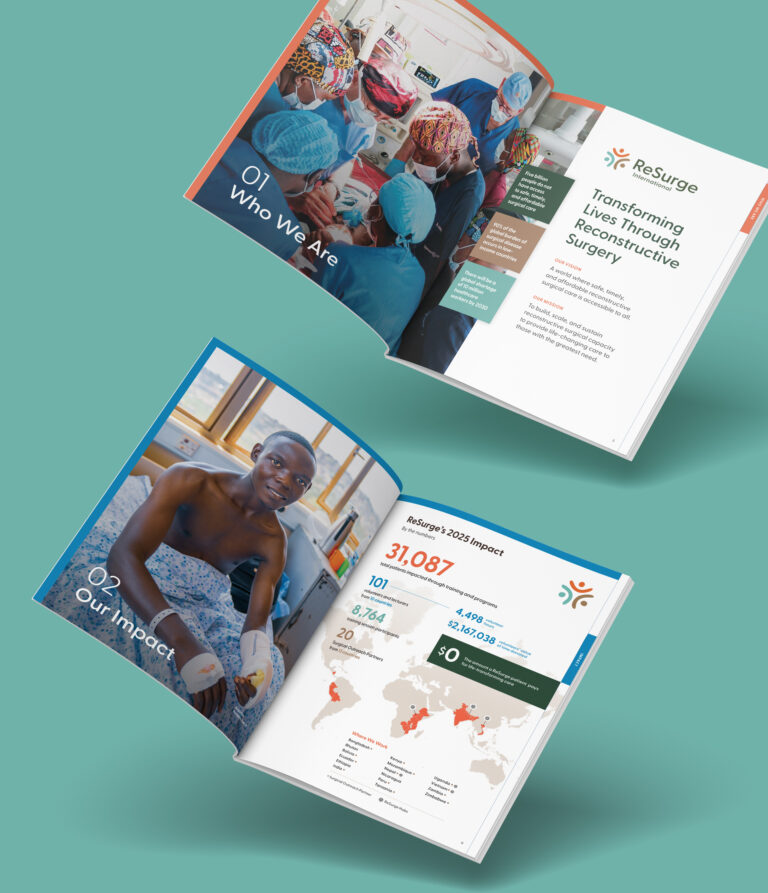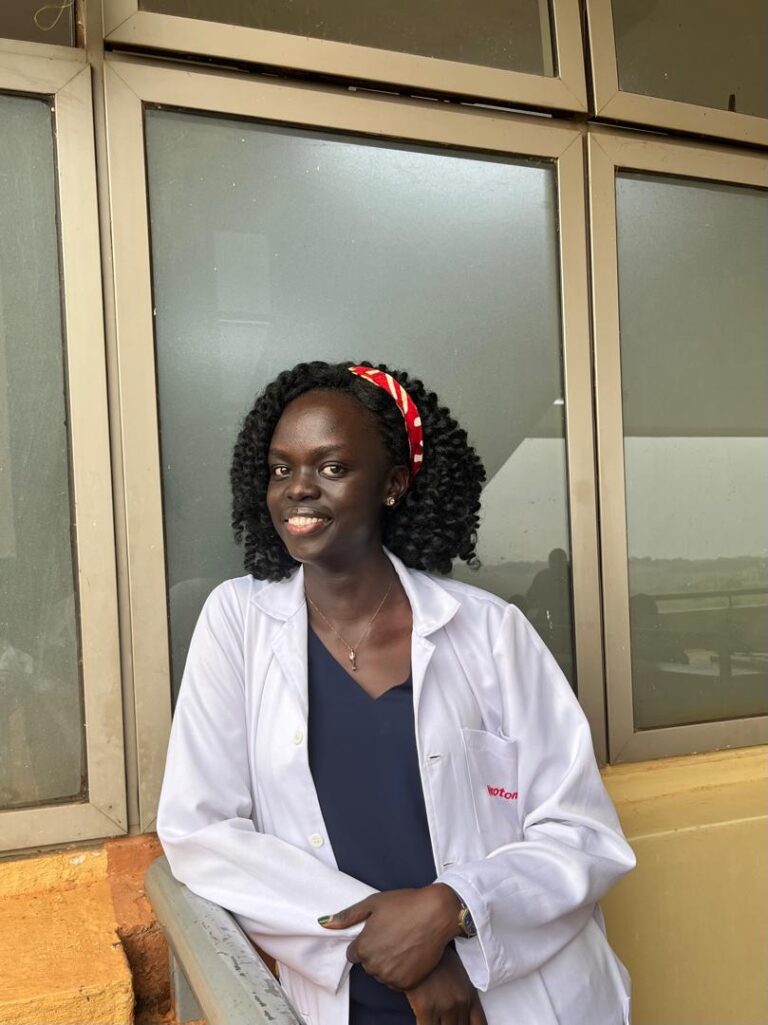The COVID-19 pandemic hit the global surgery sector hard. All international travel was canceled and elective surgeries were put on hold, contributing to what would become one of the largest surgical backlogs of our time. At ReSurge, we turned the challenges of a global pandemic into an opportunity to inspire, train, fund, and scale more reconstructive surgical teams around the world than ever before. How were we able to do this? There is no one better to tell that story than Dr. Tinga Nyoni, a ReSurge partner and scholar from Zimbabwe who not only passed her boards, but also received the highest score across the 14 countries comprising the College of Surgeons of East, Central and Southern Africa (COSECSA) — all during a pandemic.
Dr. Nyoni is part of our ReSurge International Program in Africa (RIPA), a program we started to address the severe shortage of reconstructive surgeons in the region. She is also a COSECSA fellow and a member of the second cohort of Pioneering Women in Reconstructive Surgery (PWRS), a program created by ReSurge and SkinCeuticals to support and empower women in the field of reconstructive surgery.
“When the pandemic started, most of the reconstructive surgery cases weren’t being done because most of the big hospitals went into emergency mode,” Dr. Nyoni explained. “This not only created a backlog of surgeries, but stopped trainees from getting time in operating rooms, which meant we were unable to learn how to perform surgeries, and be properly prepared for our board exams.”
When COVID19 restricted travel, ReSurge quickly pivoted to a robust virtual training program. Over the course of the year, we delivered 98 virtual lectures to more than 2,800 overseas trainees across 31 countries. This dramatic shift was critical in ensuring emerging medical professionals like Dr. Nyoni could still benefit from the teachings of our world-renowned surgeons, anesthesiologists, pediatricians, nurses and physical therapists, even while they couldn’t get all of the normal hands-on training they typically would receive. Dr. James Chang, ReSurge’s Chief Consulting Medical Officer and the Chief of Plastic and Reconstructive Surgery at Stanford University, led small group board prep sessions for Zimbabwe’s COSECSA trainees.
Dr. Chang personally mentored Dr. Nyoni, helping her prepare for her boards when getting operating time was impossible. In fact, Dr. Nyoni credits her one-on-one mentoring with Dr. Chang as a large part of how she received the highest score in the region. She says the changes ReSurge made were an important pivot, “instead of having everything go to a standstill, ReSurge has had a great impact.”
Dr. Nyoni originally got involved in ReSurge by attending workshops when a visiting educator team would work in the OR at her hospital in Harare, performing surgeries while also training local surgeons in special cases. Her supervisor was a member of the first PWRS cohort and suggested she would make an excellent member.
As a woman in the surgical field, Dr. Nyoni appreciates having a community of women who are there to support each other, “Through the PWRS program, I’ve gotten to meet a lot of female surgeons who are in a similar situation as I am. It’s nice to get to know people and to know that you’re not the only one on the continent suffering from the same issues.” She says that ReSurge is helping her see what’s possible for her, and for the future of women surgeons. “I have a mentor, Dr. Paige Fox of Stanford University, who is a hand surgeon that ReSurge connected me with. What’s nice is that she’s also a woman and it’s very encouraging to see that a woman can be so big in her field. It gives me inspiration.”
While Dr. Nyoni is now one of only three reconstructive surgeons in the country of Zimbabwe, she continues to look for ways she can further help meet her community’s needs, and she plans to train in hand surgery, stating, “It’s a field that doesn’t have any specialists in Zimbabwe. It’s an area that is lacking and a lot of people may not get to use their hands because people get unnecessary amputations or they end up with a stiff hand that might have been treated better and therefore usable.”
Dr. Nyoni looks forward to a time when current trainees can become trainers as well, when they can create outreach programs and go to rural communities, to do workshops where there are smaller hospitals, so patients don’t need to be referred to big cities like Harare for surgery.
“What I’d like people to know is, ReSurge’s training model is making quite a big impact. And it’s something that I hope not only continues but becomes a lot more ingrained into our programs. I do hope this continues because there are other surgeons that are coming down the pipeline that would benefit from ReSurge just as much as I have benefited from them, so I urge them not to stop, not to give up.”

